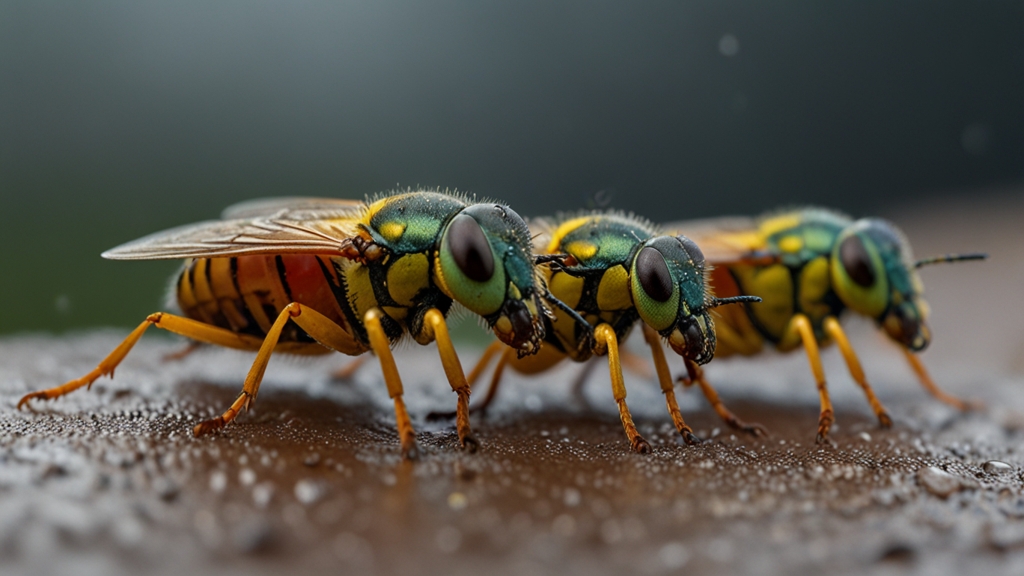The Ultimate Guide to Pet Nutrition: What Your Furry Friend Needs
As pet owners, it’s our responsibility to ensure that our furry companions live a healthy and happy life. A significant aspect of their well-being revolves around proper nutrition. Understanding what nutrients your pet needs and where to source them can be overwhelming, but this ultimate guide aims to simplify the process.
Understanding Basic Nutritional Needs
Just like humans, pets require a balanced diet that includes proteins, fats, carbohydrates, vitamins, and minerals. However, the proportions and sources of these nutrients can vary greatly between species and even breeds.
Proteins: Building Blocks of Life
Proteins are essential for growth, maintenance, and repair of tissues. They are made up of amino acids, some of which are essential — meaning your pet must obtain them from food. Sources of high-quality protein include meat, fish, eggs, and certain plant sources like legumes.
"Protein can make up to 30 to 40% of a high-quality pet diet, as it is the cornerstone for muscle development and overall health."
Fats: Energy and Vitality
Fats provide a concentrated source of energy and are vital for brain function and skin health. Look for sources rich in omega-3 and omega-6 fatty acids, such as fish oils, flaxseed oil, and chicken fat.
Balance is critical with fats; too much can lead to obesity and related health issues, while too little can result in poor coat quality and energy levels.
Carbohydrates: Fuel for Play
Though not always essential, carbohydrates can supply quick energy and are often included in commercial pet foods as fillers. Whole grains, vegetables, and fruits are good carb sources, providing fiber and phytonutrients. Choose whole, unprocessed options to get the most nutritional bang for your buck.
"Fiber, a type of carbohydrate, is crucial for digestive health and can help prevent issues like constipation and diarrhea."
Vitamins and Minerals: Tiny Powerhouses
Micronutrients, though required in small amounts, are crucial for overall health. Vitamins like A, D, E, and K are fat-soluble and stored in the liver, whereas vitamins B and C are water-soluble and must be replenished regularly. Minerals like calcium, potassium, and magnesium are critical for functions ranging from bone health to nerve transmission.
Commercial vs. Homemade Diets
The debate between commercial and homemade diets is ongoing. Commercial pet foods are regulated and designed to be nutritionally complete. However, they can sometimes contain fillers of questionable quality. Homemade diets offer control over ingredient quality but require careful planning to ensure all nutritional needs are met.
Treats: Occasional Indulgences
Treats should make up no more than 10% of your pet's daily calorie intake. Opt for treats that also offer nutritional value, like carrot sticks or small pieces of cooked meat.
"While treats are a great way to train and reward your pet, overindulgence can lead to obesity and other health issues."
Special Dietary Needs
Certain pets may have special dietary needs due to age, medical conditions, or specific health goals. Always consult with a veterinarian to tailor a diet plan that suits these individual needs. For instance, senior pets often require lower calorie diets but higher fiber, while puppies need more fat and protein for growth.
Conclusion
A well-balanced diet is fundamental to your pet’s health and longevity. By focusing on high-quality sources of protein, fats, carbohydrates, and essential micronutrients, you can provide your furry friend with the best possible nutrition. Whether you choose commercial pet foods or a carefully planned homemade diet, the key is balance and quality. Always remember to consult with a veterinarian to address specific dietary needs and to ensure that your pet is receiving all necessary nutrients for a happy, healthy life.












